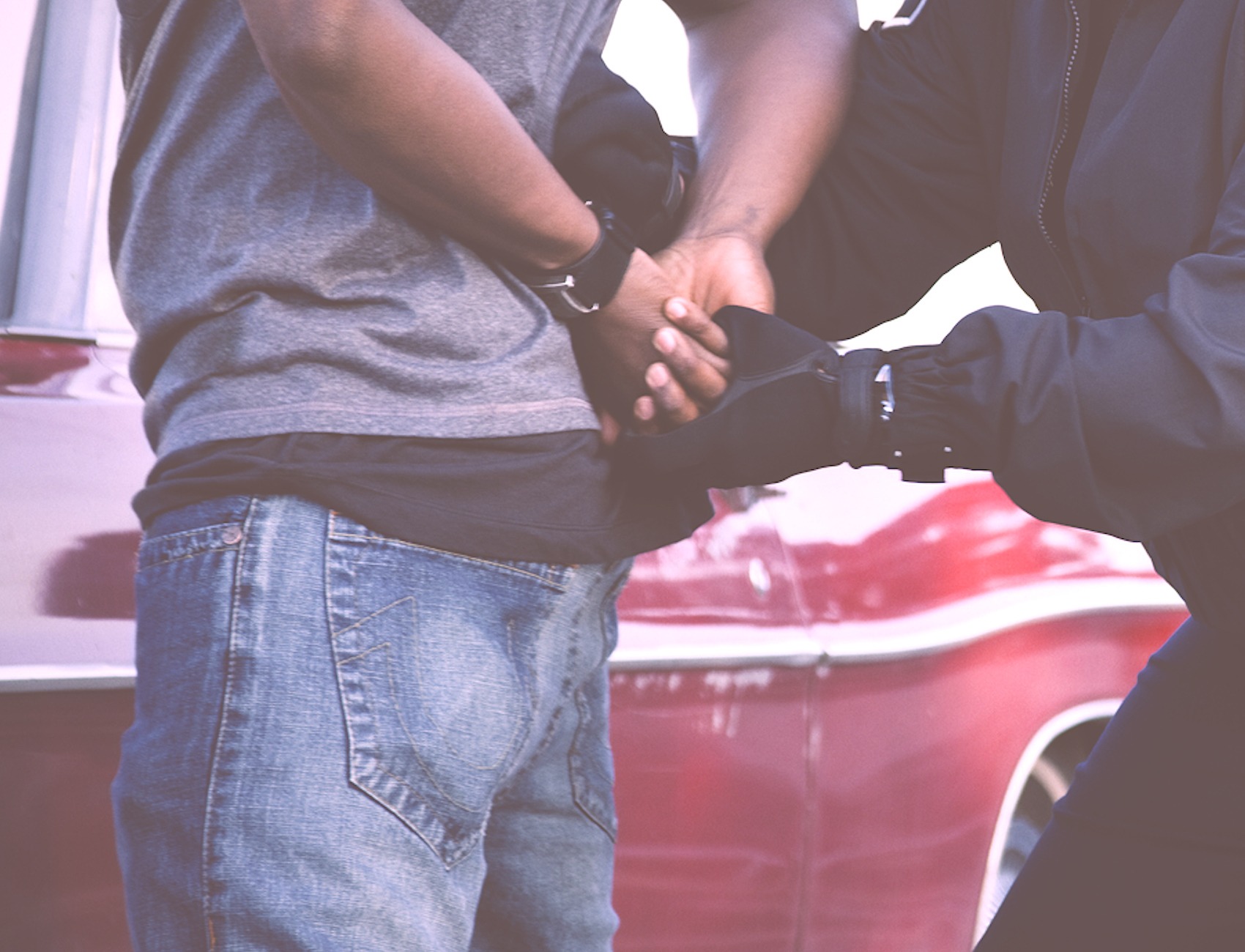Jamal Trulove: The Enduring Trauma of Stop-and-Frisk
As a Black child in San Francisco, I learned early that mine and others’ bodies meant nothing to those supposedly tasked with our protection.

This piece is a commentary, part of The Appeal’s collection of opinion and analysis on important issues and actors in the criminal legal system.
I want to tell you what it is to be “stopped and frisked.”
The first time a police officer did this to me, I was 11 years old. I was waiting that afternoon for a bus home at the busy corner of Geneva Avenue and Mission Street in San Francisco. My older brother David, then 16 years old, and my stepbrother, Shannon, then 14, were with me. A beat cop walked up to us and demanded, quite casually, “Put your hands on the wall.” My brother David asked, “For what?” The cop took David by the shoulder and threw him against the wall. I watched in silence. Then, one by one, he had us spread our legs, and he put his hands all over our bodies. People walked by, and cars slowly drove past as this was done to us.
From that time, at age 11, until I was about 22, I estimate I was stopped and frisked by the police over 60 times.
If you did not grow up as a Black boy in the U.S., you may not fully understand what these police encounters meant. Imagine yourself, walking down the street. Armed police officers drive up, hop out of their car, and say “We got you down for having drugs!” or “You have a gun on you!”, though neither statement is true. Your heart rate goes up from the confrontation. Anger rises and fear rises, as you or your friends or your brothers turn around and “grab” the nearest wall. Police officers search and defile your body with their hands.
In the projects, the encounters are so much worse than they are on a busy street corner for all to see. After they tell you to turn and grab the wall, police officers put gloves on. They push their fingers in your mouth and against the inside of your cheeks because they “know” that is where drugs are hidden. Then finding nothing, they move to your crotch. The officers would say to us, “We’re going butts to nuts boys.” They put their hands down your pants, in your underwear, and grab your scrotum. They pull your butt cheeks apart with their fingers and joke with one another as they commit this assault. Our bodies were worth nothing. We were basically sexually assaulted publicly, and it was normalized.
In the projects, the police can act with impunity. Who is going to complain? To whom? And who cares about the complaints of people in the projects anyway?
When I was 15, I was with my younger brothers, then 11 and 12, leaving a park together after playing with our friends. Police officers stopped us and searched us. I was recently asked if I was particularly upset having to witness this happening to my little brothers, whom I loved and of whom I felt protective. I responded that this was no worse than usual.
By the age of 15, still a child, these encounters had become normalized for me. This is what being a Black boy meant—being subject to routine assaults. Of course, we hated it, and we were angry at our public shaming. The elders in our community organized to prevent the practice. But at the age of 15, I had no expectation that my little brothers would be spared these assaults, just as I was not spared. I was numb to trauma.
The full effect of stop-and-frisk continued off the streets. When I sued the San Francisco Police Department for framing me for murder, I got to see the “field ID” cards that marked some, but not all, of the times I was stopped. A “gang cop”—an officer who worked for the department’s division on gangs—referred to the cards in a sealed deposition in February 2017. He said that seeing a person had been stopped so many times made him start to think that there must be something there.
That’s when I realized that the police’s power to stop me and frisk me could, by itself, justify whatever they wanted to do in the future. A history of stop-and-frisks would seem to a judge or jury that I was guilty of something. I and others were the continual victims of the police, but they twisted our victimhood into proof of our guilt.
Those who have, or continue to, defend such police behavior as protecting the public reveal, in doing so, that they believed my community to be outside of the public. Our safety was not a part of their calculation. We could be legally assaulted at any time by men and women with guns and batons. Our bodies were defiled daily, and we had no protection. There was no excuse then. There is no excuse now.
Jamal Trulove was born and raised in the Sunnydale Housing Projects in San Francisco. He was an aspiring hip hop star and actor when in 2008, he was arrested and subsequently convicted for a murder he did not commit. His conviction was overturned in 2014 for prosecutorial misconduct. In 2015 he was retried and acquitted. He filed a lawsuit for his wrongful conviction and in 2018, a federal jury found that San Francisco police officers fabricated evidence against him and withheld exculpatory evidence. The jury awarded him $10 million. San Francisco later settled his case for $13.1 million. Jamal played Kofi in the movie “The Last Black Man In San Francisco.” Jamal has used his platform to advocate for the rights of the accused and the exonerated.
